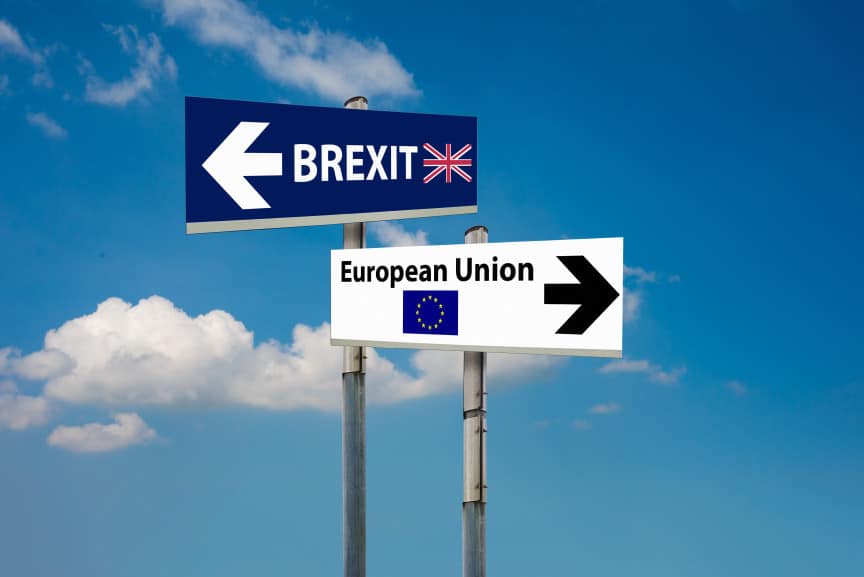Brexit is a real possibility and many expats are wondering how this will affect them, if the vote for Brexit is made on June 23rd 2016.
Nearly 1.5 million Brits are currently settled in other EU member states. How many would need to move back or get visas? This is an unknown. Those pro Brexit point to the Vienna Convention but what protection will that offer?
Vienna Convention
Vienna Convention on the Law of Treaties may help. But Article 70 of that convention only protects rights and obligations “created through the execution of the treaty prior to its termination”.
In other words, it will not really help those that become expats after the UK leaves the EU.
Will it give Brits any continuing right to be treated as an EU citizen in the years after Brexit, for the rights to work, use of public health care, the right to buy more property or even the right to carry on living in the host country? There is nothing to say it will.
The main arguments of the two camps are:
Brexit – Leave arguments
Economy

UK Expat Voting
Some estimates suggest the total economic cost of EU membership is over 10% of our annual GDP, circa which makes it something like £200 billion.
This money would be better spent on new British industry and Retail and Development.
Trade
Britain can independently pursue international trade deals with China, India and the US.
The Central Agricultural Policy (CAP) is seen as wasteful and expensive.
View that Britain could become like Norway, with access to the EU’s single market, but not bound by EU agriculture or EU justice systems.
Bureaucracy
EU is over-regulated and a bureaucratic burden to the UK.
Immigration
The UK has no control over immigration from other EU member states.
Immigrants exploit health system and are benefits‘ tourists. The UK is a place where people visit or migrate because of what they perceive as a more generous welfare system, or the NHS.
Belief that the UK is at greater risk of a terror attack while part of the EU.
Brexit – Remain arguments
Economy

UK Expat Voting
The EU is one of the world’s largest markets, accounting for 25 per cent of global GDP and the UK’s biggest trading partner.
Trade
45 per cent of the UK’s exports are to the EU, while 50 per cent of imports are from the EU.
Membership of EU makes the UK more attractive for foreign investment The pro-EU camp say this access to the EU market balances out the £200billion cost of membership.
Brexit, the cost of membership outweighed by economic benefits.
The EU has introduced many directives which undoubtedly help British workers and protect our rights.
Employment Law
EU protects the rights of employees-
• Regulated working hours, capped at 48 hours per week.
• Guarantee of 4 weeks annual leave
• Parental leave guaranteed
• Anti-discrimination protection
Over three million UK jobs are reliant on the EU. Brits can work anywhere they want in the EU without having to apply for a work visa.
Being at Centre of the EU
A seat at the table would be lost by leaving the EU
Even though Norway still has to follow most EU rules, it still doesn’t have the power to influence EU decisions.
If we stay in the EU, we will continue to be able to have our say on regulations and decisions.
Food Hygiene
UK’s food standards laws originate in the EU, meaning many potentially harmful additives are banned from food.
Travel
Visa-less travel across the EU.
Driving licenses are also valid in all EU countries.
Immigration
EU citizens tend to be better educated than UK nationals. Over 30% have a degree, compared with just over 20% of UK citizens.
EU citizens have contributed 35% more financially to the UK than they have cost the UK over the last 15 years. People moving over from the EU since 2000 have contributed 34 per cent more financially to the UK than they have cost the UK.
Plus, staying would mean the 1.4million Brits currently settled in other EU member states wouldn’t need to move back or get visas.
Assumptions

Pension fund invested to age 65, growing at a rate of 5.37% per year, adjusted for inflation. The fund can grow at more or less than this.
The figures assume basic rate tax relief, this could change in the future.
Once the first tax free amount has been taken a tax free lump sum is only available from the fund provided by new (“uncrystallised”) contributions.
Taking benefits early will almost certainly reduce your pension income in retirement. This scenario will only work in particular circumstances.
Care has to be taken not to fall foul of HMRC’s PCLS Recycling Rules, professional advice is essential.
Clearly credit cards should only be used for short term borrowing, it would be better for clients if they could avoid the above situation in the first place.
The views expressed in this article are not to be construed as personal advice. The author does not except any liability for people acting without personalised advice, who base a decision on views expressed in this generic article.
This article was published in May 2016
See various video’s about this at our channel TAILORMADE FUTURE.
Related Stories:
- BREXIT ‘22? As U.K. Costs Skyrocket, Brits Could Find Relief Moving Abroad
- How is a weak British pound affecting the UK economy
- Expats, Residency and Schengen | Expat Advice
- Moving to Spain
- Brexit impact on British pensions?
Share this story



